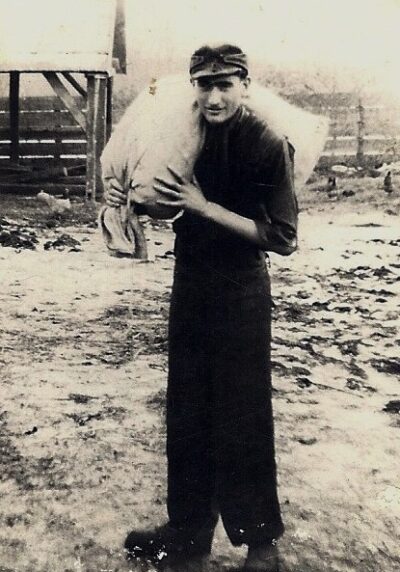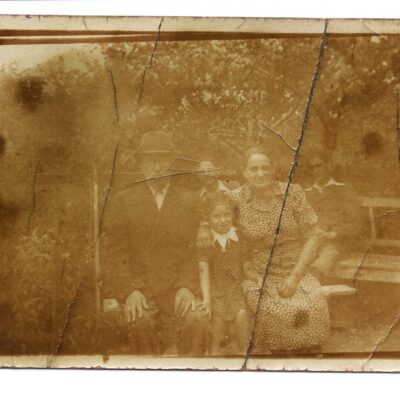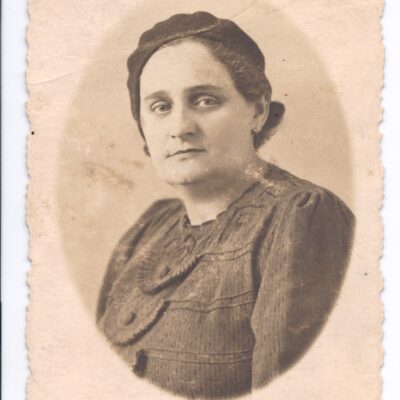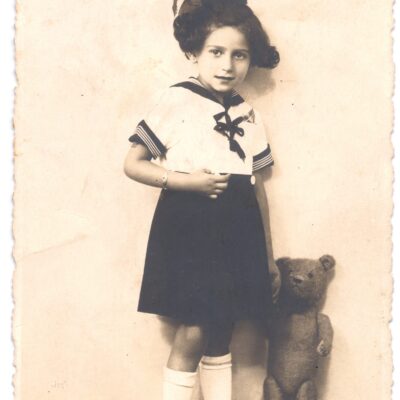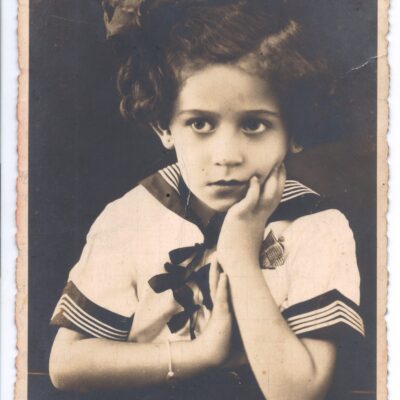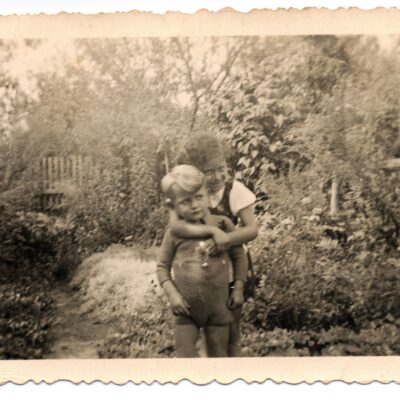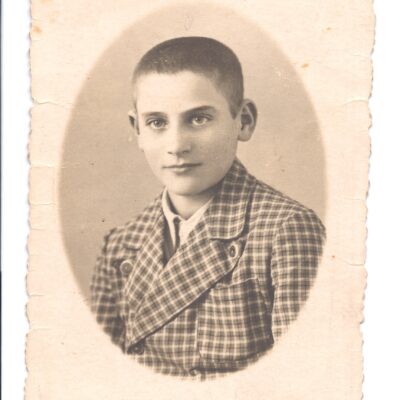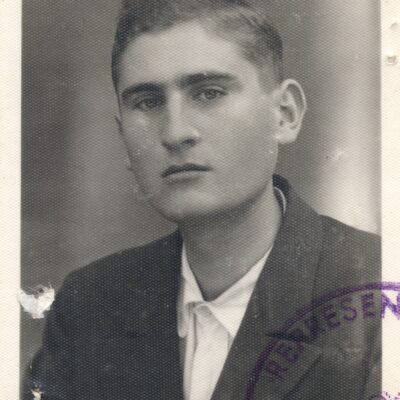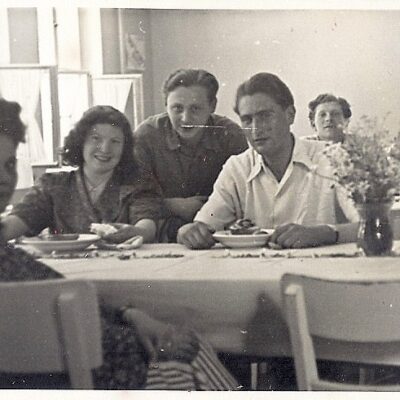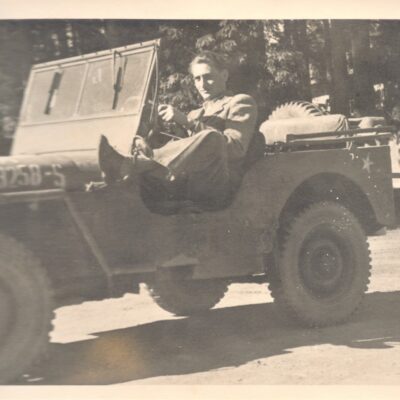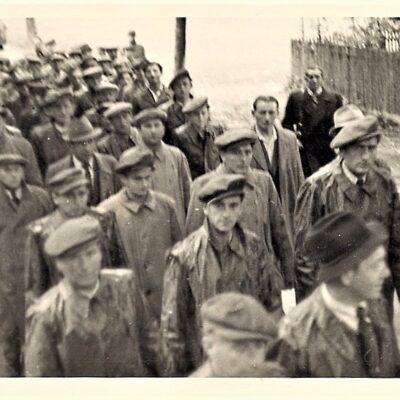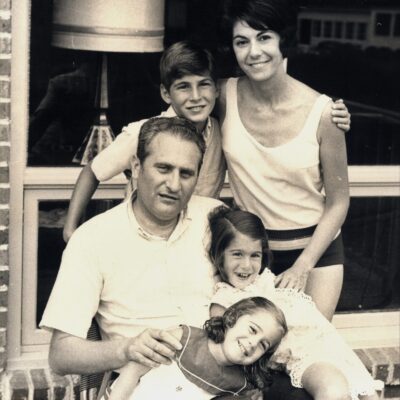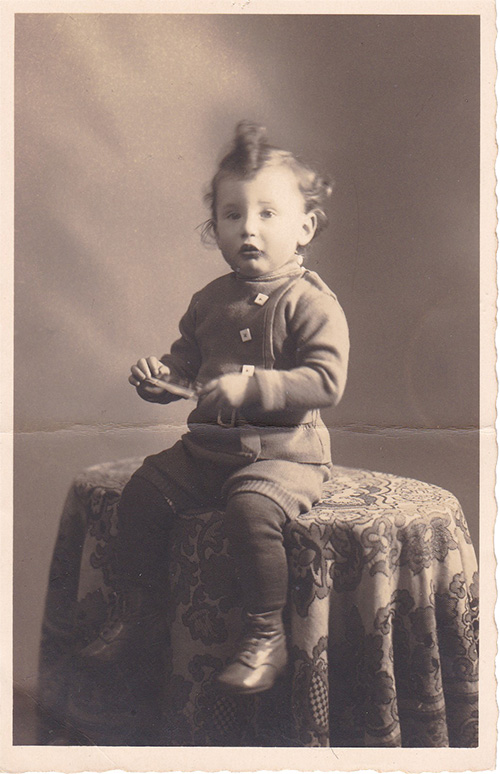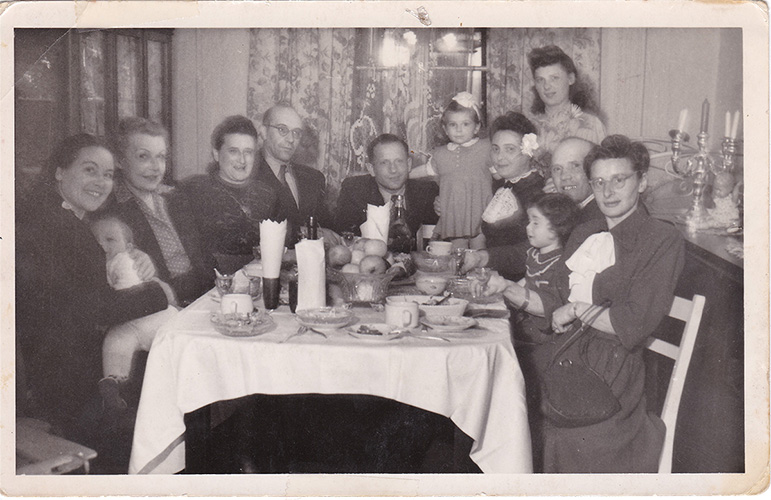Max Steinmetz
Biography
Between 1942 and 1945, from the time he was seventeen until he was twenty, Max Steinmetz was held in German captivity in at least five ghettos or camps.
His first ghetto imprisonment was an abandoned brick factory. Jews from his home town in Transylvania had been rounded up from their homes with only what their arms could carry. He remained there approximately six months.
In 1943, Max and his family were herded into cattle cars for the three-day, four-night journey to Auschwitz. The sun blazed down on the train, the prisoners crushed into a space so confining that one had to choose whether to sit or stand, as changing position was impossible. Everyone had a half loaf of bread and each car had a single bucket of water. Upon arrival at the dreaded camp, 25% of the passengers had already died. On the train platform, Max came face-to-face with the infamous Dr. Josef Mengele, the “Angel of Death.” While Max and his brother, Henry, were selected for labor, their mother, father, and younger sister were sent to the gas chamber. Taken to Dachau, then to the sub-camps of Kaufering and Landsberg, Max and Henry were forced to build roads and airplanes for Messerschmitt, all for a daily ration of a half loaf of bread and a canteen of black coffee. It was in Landsberg, on February 4, 1945, that Henry died of starvation.
Subsequently, Max was re-incarcerated in Dachau. In April 1945, ten days before liberation, the Germans marched the prisoners into the Tyrolean Alps to dig fortification trenches. At 6’1” and weighing only eighty pounds, Max was sick and hallucinating. He managed to escape, wandering to a local farmhouse where the wife of an SS officer took him in. Filthy and emaciated, Max was provided with the first bath he had had in three years, food, and a bed.
Max was liberated by the American forces on May 2, 1945. He says that his fight to stay alive was motivated by his desire to see the Germans lose the war and to have one good meal. He was hospitalized for several months and then checked into a Displaced Persons Camp, where he applied for a visa to the U.S. It was approved in 1949, six years after the onset of his nightmare.
Max worked his way across the Atlantic in the ship’s kitchen and after arriving in New York, found a job paying twenty-four cents per hour. After brief stays in Denver and Albuquerque, he moved to Birmingham in 1955, making his living as a clothing executive. Max married his wife, Betty, in 1962, and they were blessed with three children and six grandchildren.
Darkness Into Life
This online exhibit of photography and art offers a special glimpse into the private memories of 20 Alabama Holocaust survivors, revealing stories of childhoods past, lost family and friends, despair and sadness, cruelty beyond belief, bravery, the joys of liberation, and new lives in Alabama.
Online ExhibitPhotos & Documents
More Information
Ilona Berkovits (1901-1944) and Josef Steinmetz ( – 1930)
Step-father: Louis Markovits
Heinrich (Henry) Steinmetz
(1926-1945, Dachau subcamp of Kaufering)
Eszter Markovits
Born 1938
Bettyrene (Betty) Friedman
Married July 15, 1962 in Birmingham
Stephen Steinmetz (Stephanie)
Caren Steinmetz (Donnie Fox)
Lisa Steinmetz (Scott Morchower)
Szaszregen Ghetto (Romania)
Auschwitz
Dachau
Dachau Subcamp: Kaufering-Lager III
Dachau Subcamp: Kaufering I / Landsberg
April 26, 1945: From Dachau toward Bad Tolz, Germany
Near Bad Tolz, Germany
Schwabing-Altersheim DP Hospital in Munich 1945
DP Hospital in Gauting, Germany for 8-9 months
Passau, Germany
Feldafing, Germany
Wrote his memoir in 2017, Determined to Survive: A Story of Survival and One Teacher’s Passion to Bring That Story to Life

